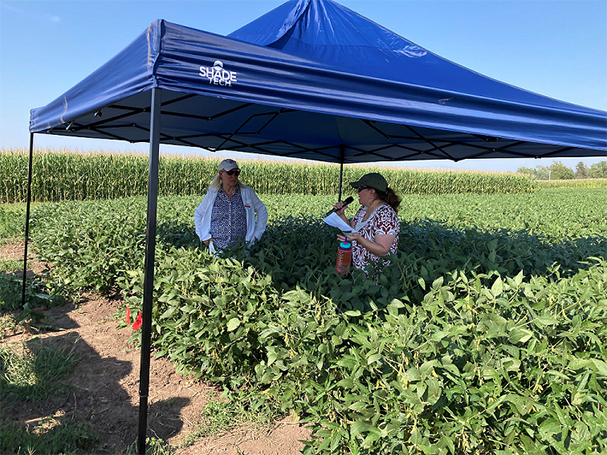Iowa State University project explores soil health and economic impacts of organic farming

Published: April 9, 2024
Category: Organic News
Third research site is added to engage farmers with in-depth data, knowledge, and tools
As more farmers become interested in the rising demand for organic food, Iowa State University is leaning on decades of experience at its organic sites to engage with them. A new two-year project will explore long-term impacts of crop rotations, no-till practices, and use of composted animal manure for fertilizer. Resulting data will assess impacts on yields, deep soil carbon storage, greenhouse gas emissions, nutrient cycling and loss, farm economics, and more. The study will also closely examine soil fertility and structure, water-holding capacity, and soil biology.
Agronomist professor and organic extension specialist Kathleen Delate will join Sabrina Ruis, soil scientist with the USDA’s National Laboratory for Agriculture and the Environment on the work. “This new research will…help provide answers to farmers’ pressing questions about financial risks and returns,” Delate said. She oversees operations at the Long-Term Agroecological Research (LTAR) study in Iowa, one of the longest-running studies of organic cropping systems in the U.S.
A third new research site in Johnson County, IA will bring socially disadvantaged farmers into the conversation.
“[Farmers’] top questions for research are always about soil health and economics,” Delate said. “This study prioritizes those, including citizen science at a working farm location.”
Another avenue of focus is looking at the ability of a popular farm-level modeling tool to reflect organic methods—the CarbOn Management and Emissions Tool (COMET) developed by USDA.
The project’s results will be published in an Iowa Extension report highlighting climate-smart organic practices.
Source: Iowa State University
To view source article, visit:
https://www.cals.iastate.edu/news/2024/new-organic-farming-study-tackles-questions-soil-health-economics-and-more-input-farmers
Organic & Non-GMO Insights April 2024








